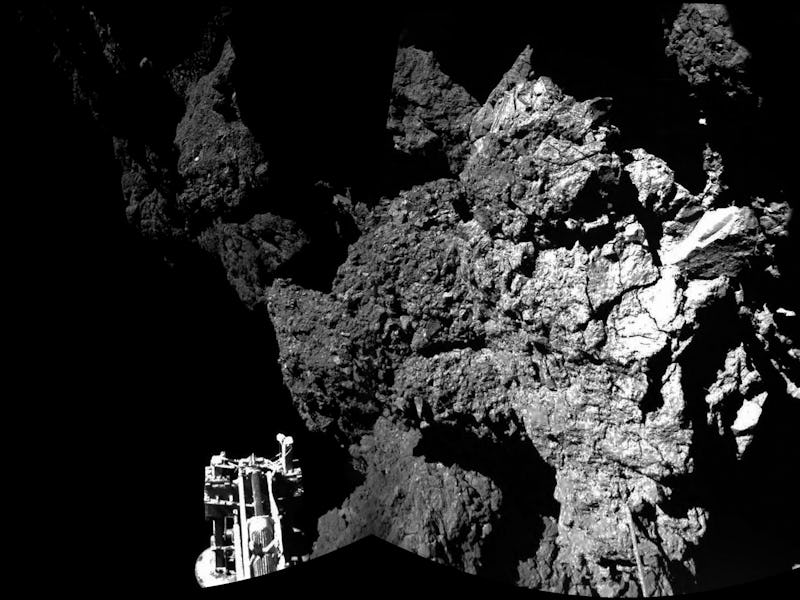Farewell to Philae, the Comet Lander That Could
The Rosetta mission’s robotic probe has been silent for a year. On Wednesday, Earth finally said goodbye.

If you’ve been following the European Space Agency’s Rosetta mission — you know, the one where they sent a probe to study the comet 67P/Churyumov-Gerasimenko, and also landed a little robot on the gigantic ball of ice and rock — then you know September 30, 2016 marks the day Rosetta will crash into the comet — for science of course!
ESA scientists had already long ago resigned themselves to mourning the death of Philae, the robotic lander, which had been basically silent since July 9, 2015.
On Wednesday, ESA officially shut down all lines of communication between the main spacecraft and Philae. It’s just as well, seeing as how the Rosetta team is basically preparing for the mission’s end anyway. The spacecraft is about 520 million kilometers from the sun, and doesn’t have too much more power left. In order to maximize the rest of the research for the next few months, ESA wants to conserve as much energy as possible and shut down all non-essential components.
“This is the end of a… fascinating and successful mission for the public and for science,” Andreas Schuetz of German space agency DLR told the news agency AFP on Wednesday.
Philae always ran into problems during the Rosetta mission. The lander’s harpoons failed to latch onto the comet’s surface, and the robot ended up bouncing several times before ending up in a shady ditch — not good for an instrument depending on solar-powered batteries. Philae lasted for about 60 hours and completed as many experiments as possible before entering a standby mode.
As 67P neared the sun in June 2015, the lander got a healthy dose of sunlight that allowed it to send a two-minute message back to Earth via Rosetta. And then suddenly, the lander went quiet on July 9, 2015.
The flick of the switch is just another sign that one of the most exciting space missions in the last few years is finally coming to a close. Stay tuned for September 30, when we get to witness a literally explosive end to Rosetta.